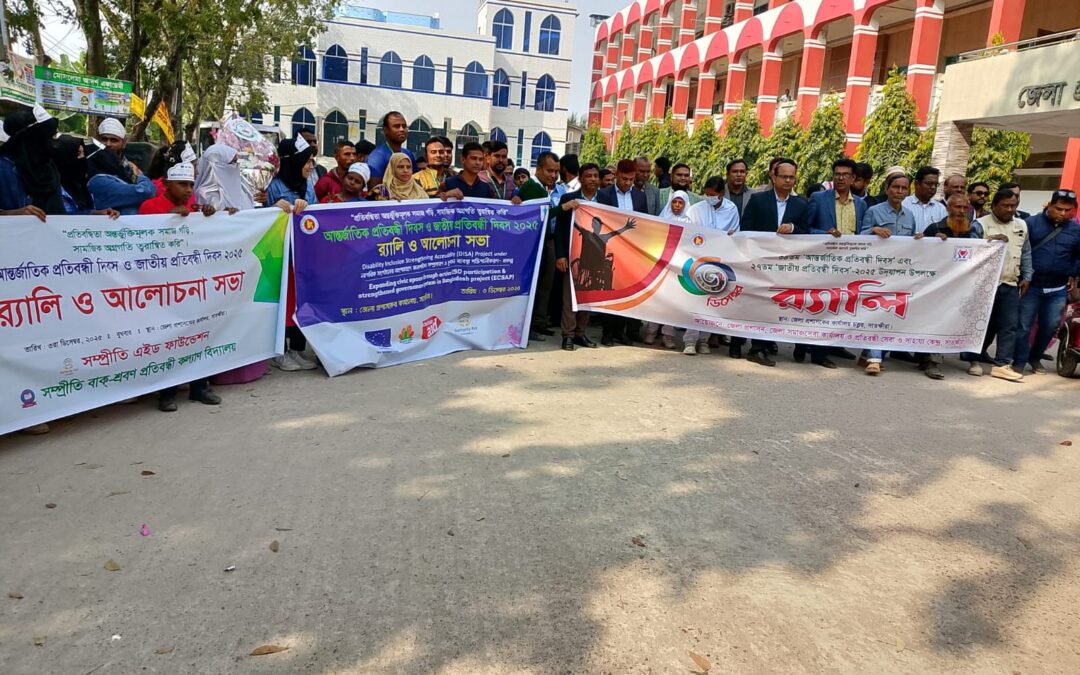
We took part the celebration of International Day
We took part the celebration of International Day of Person with Disabilities to promote the rights and access PwDs everywhere.

We took part the celebration of International Day of Person with Disabilities to promote the rights and access PwDs everywhere.
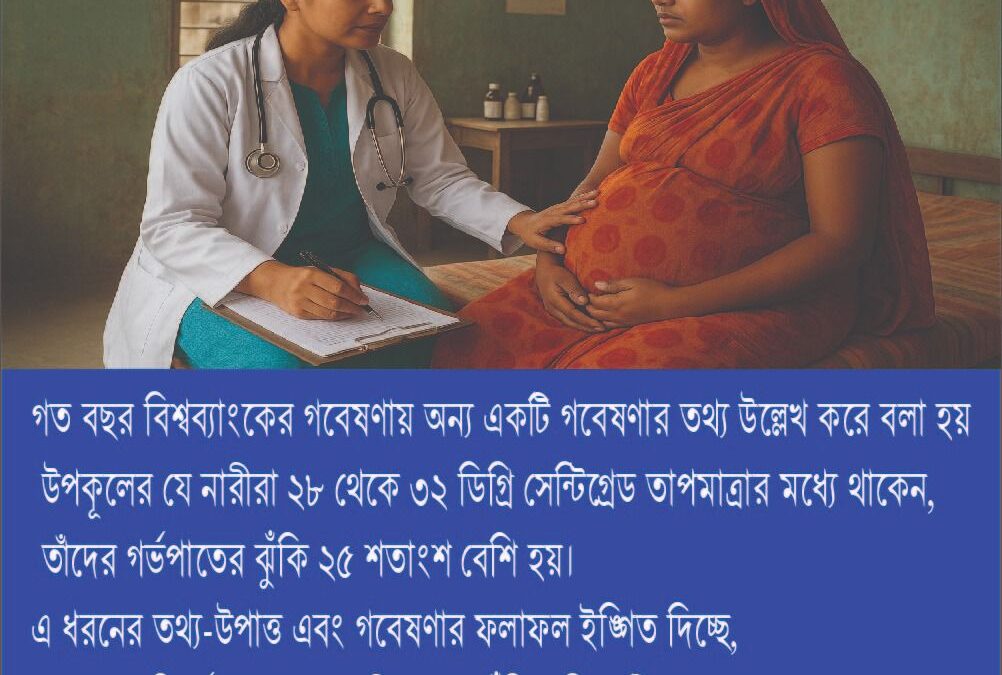
Women and girls suffer disproportionately from climate change due to their roles in caregiving and resource collection, making them more vulnerable to health issues, displacement, and violence.
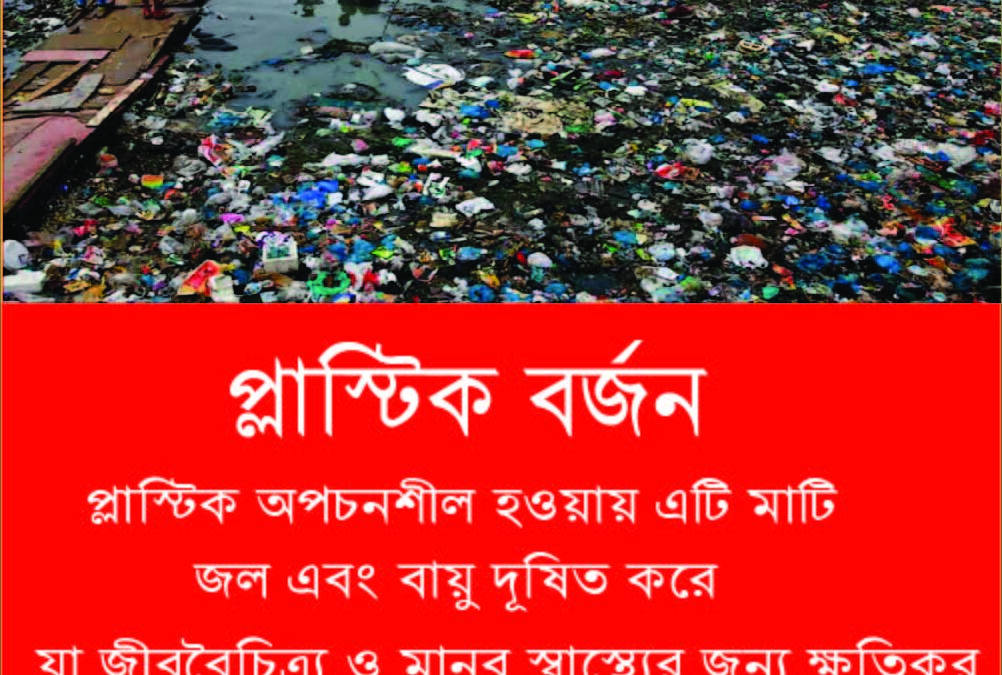
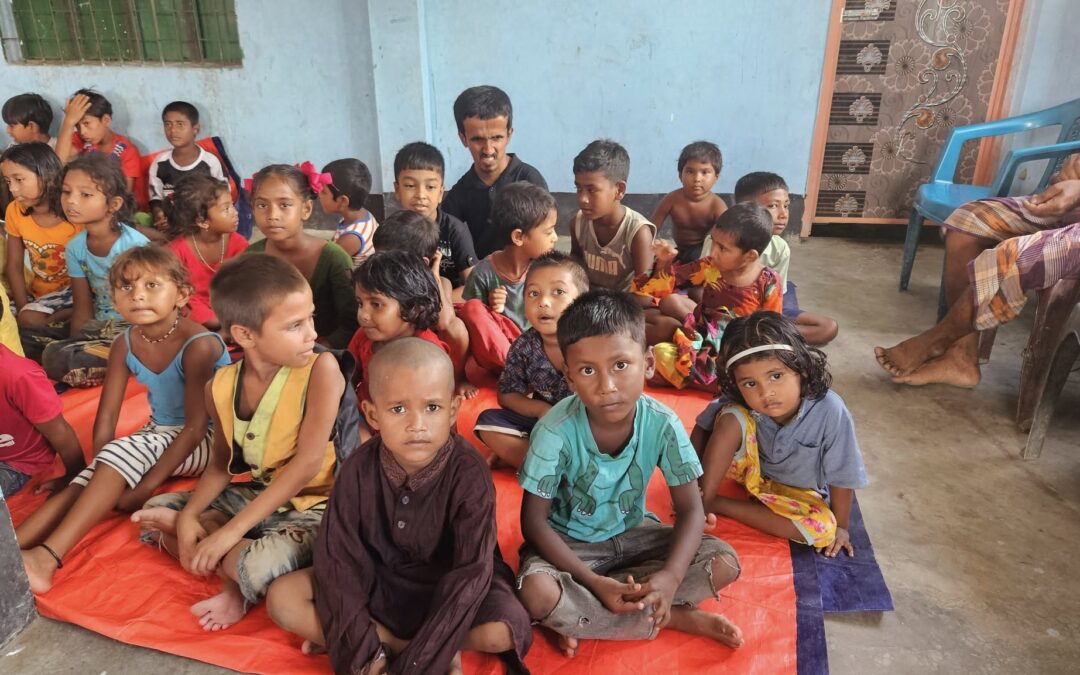
Faridpur, October 24, 2025 — Samprity Aid Foundation organized an Advocacy Meeting to Promote the Rights of the River Gypsy (Bede) Community at the Samprity Training Hall, bringing together 30 members of the Bede community along with representatives from government and non-government organizations. The meeting aimed to raise awareness about the rights, dignity, and livelihood challenges of the Bede community—one of the most marginalized and climate-affected groups in Bangladesh.
The session was inaugurated by Mr. Savaronjon Sikder, Executive Director of Samprity Aid Foundation, who in his opening remarks highlighted the need for equal rights, social inclusion, and alternative livelihood opportunities for the Bede people. He noted that due to climate change and environmental degradation, traditional water-based livelihoods are disappearing, leaving the Bede community vulnerable and economically insecure. “It is our collective responsibility to ensure that the Bede community receives equal access to education, healthcare, and sustainable income opportunities,” he said.
The meeting was facilitated by Mr. Masum Billah Sohag, who led discussions on possible strategies for policy advocacy, skill development, and integration of Bede people into mainstream society.
Participants from the Bede community shared their real-life struggles and aspirations, while GO and NGO stakeholders expressed solidarity and commitment to work jointly for the protection and empowerment of the River Gypsy population.
The meeting concluded with a shared pledge to advance policy reform and promote inclusive development for the Bede community to ensure their resilience and dignity in the face of climate change.
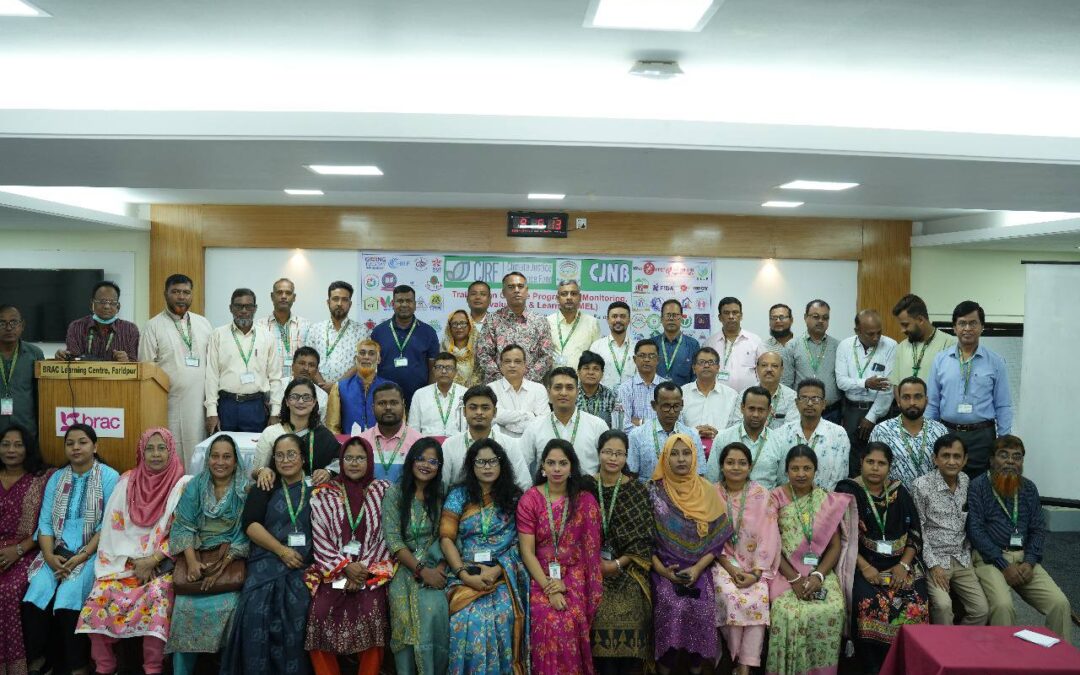
Faridpur, October 14, 2025 — Samprity Aid Foundation organized a Monitoring, Evaluation, Accountability, and Learning (MEAL) Training at the BRAC Learning Centre, Faridpur, with the participation of 60 Civil Society Organizations (CSOs) from 60 districts across Bangladesh. The training aimed to enhance the capacity, accountability, and performance of climate leaders to ensure that climate justice initiatives are effectively managed and achieve their intended goals.
The event was inaugurated by Mr. Savaronjon Sikder, Executive Director of Samprity Aid Foundation, who emphasized the pivotal role of MEAL systems in promoting transparency, accountability, and evidence-based decision-making within climate justice projects. In his opening remarks, he stated, “Strong MEAL practices enable organizations to measure progress, learn from experiences, and ensure that no community is left behind in the pursuit of climate justice.”
The training session was conducted by Mr. Adison Mallick, who guided participants through key methodologies of monitoring, evaluation frameworks, data collection, community feedback mechanisms, and adaptive learning. Participants learned how to apply MEAL tools to track project progress, assess impact, and improve implementation efficiency.
Through interactive discussions, participants shared their field experiences and explored innovative approaches to ensure accountability and learning in climate programs.
The training concluded with a renewed commitment from all attendees to apply MEAL principles in their respective regions, ensuring effective management of climate justice projects and strengthening community resilience through evidence-driven actions and collective learning.